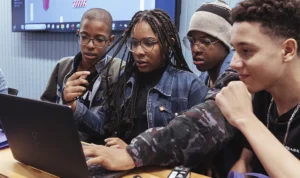iFood has already allocated R$ 21 million in donations, helped to avoid wasting 3,400 tons of food and planted another 45 tons in vegetable gardens
As part of the Inclusion pillar commitments assumed in 2020, iFood has actions that aim to combat the sad reality of a significant part of the Brazilian population: hunger and the food insecurity.
On June 8th, a study carried out by Rede Penssan (Brazilian Research Network on Food and Nutritional Sovereignty and Security) showed that more than 33 million people — 15.5% of the population — were going hungry in the country between November 2021 and April 2022 and that six out of every ten Brazilians (125.2 million people) live with some degree of food insecurity.
iFood's actions seek to attack three points of a problem that is complex, widespread and urgent, after all, as sociologist Herbert de Souza said, Betinho, founder of the NGO Citizenship Action, “those who are hungry are in a hurry”.
- Immediate access to food;
- Reduction of food waste;
- Food diversification.
Check out a little more about how iFood operates on these three fronts below.
Donations for immediate access to food
“The donations were the beginning of our journey towards combating hunger”, explains Flávia Rosso, socio-environmental impact manager at iFood.
In 2020, iFood customers were able to make donations to NGOs that work on social, environmental and educational causes directly from their cell phones. First in a specific area of the app and later when completing the purchase (the Check-out), to make the donation process even easier.
“iFood has 65 million orders per month. There are 65 million opportunities and a large flow of people looking at that button to make a decision and donate”, says Rosso.
So far, iFood has already raised R$ 21 million in donations made by itself foodtech, business partners and consumers (responsible for R$ 12 million of this amount). According to the iFood executive, 3% of the delivery app's customers have already donated. “I see this as 97% of customers that we can have the opportunity to acquire”, he says.
CUFA, Ação da Cidadania, Gastromotiva, Orgânico Solidário, Gerando Falcões, SOS Mata Atlântica and Todos pela Educação are the NGOs that receive the money donated to carry out their projects in the areas of education, environment and social assistance. There are 3 benefits of this type of action for these institutions:
- Amount received
In one of the NGOs it represented 3% of total revenue; - Predictable revenue
NGOs do not have a line of revenue and depend on donations. With this money arriving every month, institutions are able to maintain their employees, physical structures and shares. - Agility to get a campaign up and running
As can be seen in recent donation campaigns for victims of cities that suffered from natural disasters in 2022, such as Petrópolis (RJ), cities in southern Bahia and cities of Pernambuco and Alagoas.
Everyone at the Table Movement, to reduce food waste
Hunger in Brazil cannot be resolved simply with immediate access to food through donations. It is complex, systemic and involves other issues, such as race, gender and family composition. Furthermore, there is a great contradiction: at the same time that more than half of the population has some level of food insecurity, the FAO, the food arm of the United Nations, estimates that 40% of all food produced here goes to waste.
With this in mind, iFood and other food industry actors launched the movement Everyone at the Table, which connects the private sector and social organizations to redistribute surplus food as part of the strategy to combat hunger and food insecurity.
Yes, establishments that produce or sell food can donate it as long as it is within its expiration date, in ideal conditions of conservation and suitable for consumption. Since mid-2020, Law 14,016 authorizes this action and eliminates the fear of punishment.
“In addition to combating waste, we work on regulatory discussions, public policies, and the existence of reliable data so that the industry can donate more of its leftovers and this can be sustained for more years”, explains Rosso. “Hunger and waste cannot coexist.”
Between October 2021 (launch of the movement) and April 2022, Todos à Mesa has already donated more than 3,400 tons of food that would have been discarded for redistribution across the country. The initiative has already benefited 1.3 million people.
In addition to iFood, Connecting Food, Bauducco, Carrefour Brasil, Danone, Camil, DPA, M. Dias Branco, Nestlé and Lopes Supermercados are part of the movement.
Urban gardens for food diversification
iFood has an urban garden installed on the terrace of its headquarters in Osasco (SP). From there, 1.7 tons of food are produced every month and sent to the iFood cafeteria and the Osasco Food Bank, which serves around 3,000 families in vulnerable situations.
The good results inspired iFood to become a promoter of urban gardens to try to tackle another problem: food diversification and access to quality food. The materialization of this are the vegetable gardens present in schools in socially vulnerable locations.
Today, the project serves five schools, two in the East Zone of São Paulo (SP), another two in Osasco and one more in Ferraz de Vasconcelos (SP). Production has already exceeded 32 tons of food produced since July 2021, which generated a positive impact on more than 12 thousand people (students, teachers and family members). Part of what is produced remains at the school, for lunches, and the surplus goes to the students' families.
“We did a survey and all the parents who responded asked to keep the program. 63% indicated that children's nutrition improved because of the garden at school”, says the socio-environmental impact manager at iFood.
In addition to improving nutrition, Rosso lists the benefits of the school garden as a change in the relationship between surrounding people and food, the capture of CO2 by the garden and the creation of resilience for the community, as it no longer depends on others. to access food.
The next step in this solution is to find more partners (public and private) to scale it nationally and advance one more step: the garden as an income generator.


